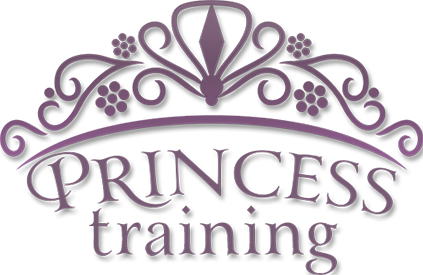 Photo: Pixabay
Photo: Pixabay
“Stop judging me” is a phrase we hear a lot nowadays. This phrase has made many of us timid about sharing our faith, and it has brought up some questions. When we share our faith, are we judging others? Is it okay for Christians to judge?
Those who say stop judging me often quote the verse from Matthew 7:1 which states,
“Judge not that you be not judged.”
So there it is, right? Christians are not supposed to judge. Well, not exactly, John 7:24 also states,
“Do not judge by appearances but judge with right judgement.”
So, according to this verse we are supposed to judge with right judgment. Well, how do we know what is a right judgement? Let’s go back over to Matthew 7 and see what we can learn from there.
When we read a little further in Matthew 7, first we get clarification as to what Jesus meant when He said do not judge. A little further down in the chapter, Jesus also talks about knowing people by their fruit. Someone once said we are not to be judges; we are to be fruit inspectors. I think this idea of being a fruit inspector verses a judge can help us understand a little more about the difference between the right and the wrong kind of judgement.
Judging vs. inspecting fruit
I grew up on a farm and my family raised a garden every year. When it came time to harvest the fruits/vegetables, we would inspect them to see whether or not they were rotten and if they would be healthy for us to eat. I would also at times enter the good fruits and vegetables in the county fair where they would be judged. Here are a few observances from a farm girl on the difference between a judge and a fruit inspector.
Judges use comparison to see which product is best.
When fruit is judged at the County Fair, the judges consider all the fruit and then determine which one is best.
In Matthew 7 and John 7, Jesus is addressing the Pharisees. The Pharisees judged their righteousness much like the way a judge at the fair looks at fruit. They compared themselves to others, and because they appeared more “righteous” than others, they decided they were the best. In Matthew 7:3 Jesus poses the question,
“Why do you see the speck that is in your brother’s eye, but do not notice the log that is in your own eye?”
When we judge others in this way, we fail to see the problems in our own life. Instead we feel like we are good because, well, we are better than others, right?
A fruit inspector determines if something is healthy.
When we inspected the fruit that we were growing, we often inspected the plants to make sure they were not diseased or eaten up by bugs. We were inspecting the plants based on their own merits not the merits of others.
In Matthew 7:15 we read,
“A healthy tree cannot bear bad fruit, nor can a diseased tree bear good fruit.”
When we judge with righteous judgement, we look to see how things are affecting our lives or the life of the person we are wanting to help. Is the activity they are participating in or the people they are hanging around producing good fruit in their lives or is it causing them damage? Will the things we or they are participating in cross one of God’s boundaries and cause damage to them spiritually? If the answer is, “yes,” there are things that are causing damage, that is when we lovingly confront the situation. We come not with an attitude that says, “What’s wrong with you? Get your act together!” We come with a compassionate attitude that does not want to see someone get hurt.
A judge looks with intent to sentence
A judge’s intent is to see the best. In everyone’s life, you will see good and bad. However, some people have a hard time accepting both good and bad. So if there is one part of your life that is bad, their tendency would be to see you as all bad.
A fruit inspector looks with intent to grow
A fruit inspector understands our roots. Where we came from and why things are a challenge for us. Because a fruit inspector knows the more intimate details, they are able to offer more compassion. They understand that our challenges do not always make us all bad. Instead they see the bad simply as a struggle to overcome or something that needs some TLC and healing.
What is your motivation?
When thinking about the difference between wrong and right judgement. This is a key question we should ask ourselves. Why are we sharing our faith or “care-fronting” someone about a harmful situation. Are we doing it to show our own righteousness or to determine if we are better than others? These are not good motivations. Our motivation should be love. A fruit inspector has put a lot of time and energy into helping his plant grow. He genuinely does not want any harm to come to his plants but wants to see them flourish. Similarly our motivation should be helping others flourish. In Ephesians Paul prays for his fellow brethren. Paul’s prayer is the perfect example of the kind of attitude we should have towards others spiritual strength.
For this reason I bow my knees before the Father, from whom every family in heaven and on earth is named, that according to the riches of his glory he may grant you to be strengthened with power through his Spirit in your inner being, so that Christ may dwell in your hearts through faith – that you, being rooted and grounded in love, may have strength to comprehend with all the saints what is the breadth and length and height and depth, and to know the love of Christ that surpasses knowledge, that you may be filled with all the fullness of God. Now to him who is able to do far more abundantly than all that we ask or think, according to the power at work within us, to him be glory in the church and in Christ Jesus throughout all generations, forever and ever. Amen. Ephesians 3:14-21
Can you feel the love and care Paul had for his fellow brethren? That’s the kind of love a fruit inspector needs to have.
We need the honesty of fruit inspectors
Could you imagine if a friend knew a piece of fruit was rotten and let you eat it anyway? How would you feel? When you asked them why they let you eat rotten fruit, they explained, “because you really wanted it and I did not want to hurt your feelings.” Would that make it any better? Although it sometimes hurts us, we need the honesty of fruit inspectors. We need people to tell us if they see danger. If someone is willing to risk losing a relationship with you or facing your anger to tell you the truth, value that person. It takes a lot of guts to be a fruit inspector.
Summing it all up
I hope you see through these crazy farm girl illustrations the difference between right and wrong judgement. I want to share with you some final advice Paul shared with Timothy.
The aim of our charge is love that issues from a pure heart and a good conscience and a sincere faith. 1 Timothy 1:5



Leave a Reply